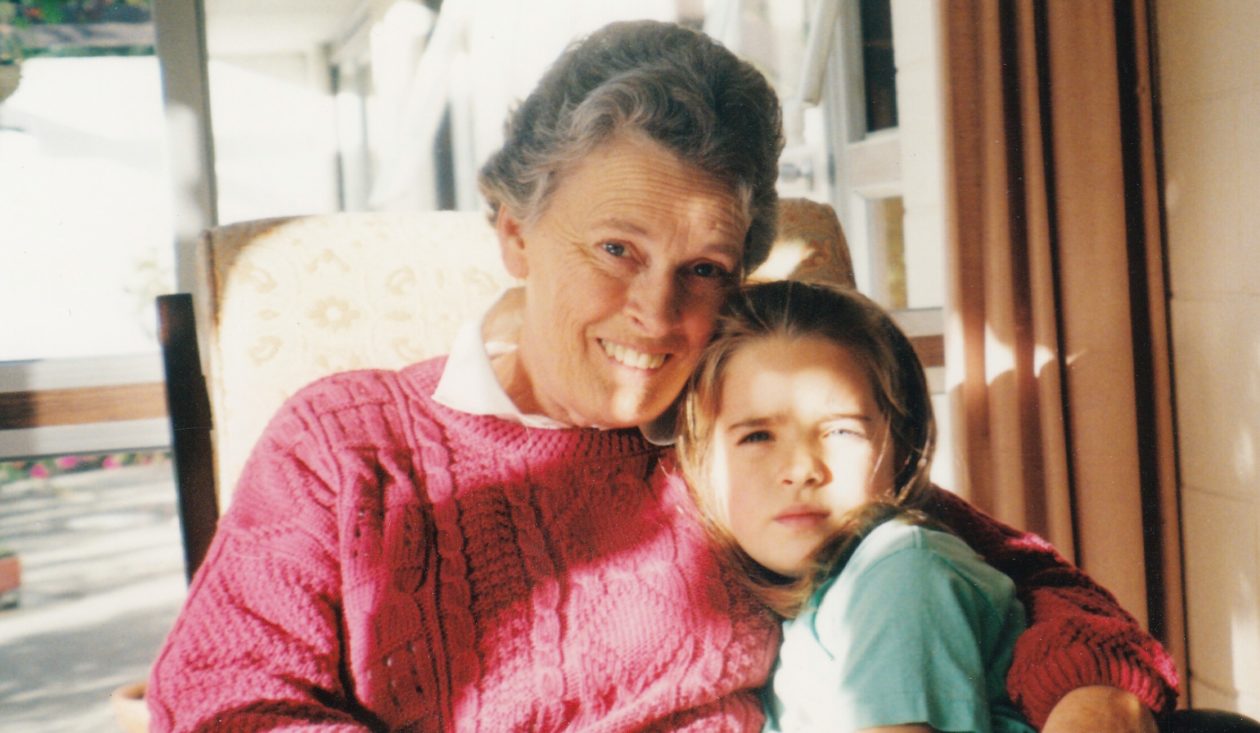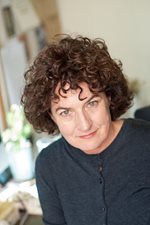The essence of Fra
Our mother never had much truck with Mother’s Day – at least not with the commercialized Mother’s Day we’ve all come to know.

She didn’t want presents or any particular fuss – ‘Every day is mother’s day,’ she said. And Mum, Frances – or Fra, as she was known to many – was an all-time mother. She was a lot of other things too, of course: a loving wife, a very connected sister and aunt, a good friend and, in time, an unabashedly proud grandmother (pictured here with my daughter, Luciana). Alongside this family life ran an equally full working life as a professional musician: playing cello in the orchestra and a string quartet, teaching piano and cello. My sisters and I relished our mother’s life in music – we went to all her concerts, we learned instruments and played in orchestras and chamber groups, we sang in choirs, we sang songs around the piano with Mum, we sang at Mass where she played the organ – music was our shared language and life-blood.
Mum began showing signs of cognitive impairment in her early seventies – the usual things: repetitions, mislaid items, memory loss. We knew this territory well – it had been the same with Mum’s own mother’s – and to a great degree our response to Mum’s evolving dementia was shaped by the model she had offered us twenty years before: patient, imaginative, and loving care of Nanny. The years of Mum’s dementia were tough and full of heartache, and complicated by our father developing dementia, too. And it was painful indeed to witness our parents’ separation and our father’s great grief when it became urgent for Mum to have residential care.
In many ways though, the difficulties of those years were ameliorated by my sisters and I being in it together – we were terribly sad, but so grateful for each other. It helped, too, that we each had a well-developed sense of the absurd – another legacy from Mum. We laughed a lot – perhaps a little hysterically at times. And, in crucial ways, we were comforted by the very nature of Mum herself. It seems true to say that the course of dementia is always the same, yet every person with dementia manifests it in a different way – and often in ways that speak to deep aspects of their personality.
Perhaps it sounds odd to say, but by the time Mum went to live in secure care it was as if she’d been released to a less complicated self; the stresses and preoccupations and bewilderments of the world receded, and there revealed was the essence of Fra – playful, sociable, salty, benignly busy, always a mother, but somehow often like a girl as well. Yes, she frequently attempted breakouts from care, yes, she was often confused, yes, she dressed in other peoples’ clothes (who cared!), and sometimes got into their empty beds. But she was still eager to chatter and laugh; she sat, cross-legged on her bed and talked lovely nonsense with her room mate (believing they were at boarding school); she made friends with the caregivers and helped her fellow residents with their bibs at dinner time. Occasionally, she whispered loudly about other residents. (‘Watch her, she’s crazy.’)
I remember many things about being with Mum in her final home, Santa Maria: her child-like pleasure in the flower garden, her ready laughter, her hilarious confabulations (‘Better go – the orchestras rehearsing in the back room.’), her looking in the mirror and declaring: ‘What a gorgeous face!’, her reading a book upside down. I remember her asking often, ‘Now what will we make your father for dinner?’ and sometimes, ‘How’s Mum?’ (‘Dead,’ said my aunt baldly, once. ‘Well someone might have told me,’ said Mum, much aggrieved.)
I remember most happily being out in the sun with my sisters and Mum, cutting her fingernails and plucking her chin. ‘Steady on,’ she said, if you pulled too hard. But she loved us tending her and we loved it too. It was the completion of a life’s arc: she was absolutely still the mother who had played music with us, played cards and games, growled, giggled, frowned at and kissed us, but she was also somehow our child now, puzzled and vulnerable, but so happy in our company, sure she was loved. It was hard sometimes to think about her there without us, wondering if she fretted, hoping she wasn’t sad.
I would think instead about the next visit and her invariable response. We would punch the code in the door and go in search of her; she could be anywhere, busy, busy, seeking company, tidying up, roaming the corridors with mysterious purpose. As soon as she saw us, though, her face lit up and she come straight for us.
‘Oh! There you are.’
Kate (Kathleen) De Goldi

Kate De Goldi is one of New Zealand’s most loved authors, whose short fiction, novels and picture books engage children, teenagers and adults alike. Kate’s parents both had dementia and she wrote about dementia in her novel The ACB with Honora Lee. As one of Alzheimers NZ’s Champions for Dementia, Kate is looking to honour the experience she had with her Mum and Dad and help raise public awareness of dementia.

